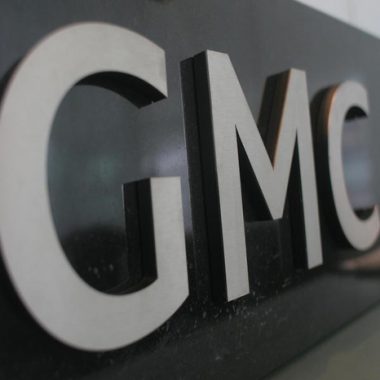Increased access to the internet and social media and negative media coverage could be behind a huge increase in the number of complaints made against doctors, according to a new study commissioned by the GMC.
The authors of the report said that the dramatic rise in complaints – from 5,168 in 2007 to 10,347 in 2012 – was due to a complex array of factors, but pointed to the rise of social media as being particularly important.
Researchers at the University of Plymouth found that increased access to online information and shared public forums gave patients a greater degree of ownership over their own health.
Consequently, patients not only had higher expectations of their doctors but were increasingly likely to treat them with ‘less deference than in the past’, according to the report.
Persistently negative media coverage of the medical profession may also be encouraging patients to make ‘me too’ complaints.
While the report noted that there was no direct link between press coverage of high-profile medical cases and ‘spikes’ in complaints traffic, its authors suggested that media portrayal of the medical profession influenced how and why complaints are made.
The researchers said: ‘Despite the absence of a direct causal link between media coverage and complaint incidence in the statistical evidence, the amount of media content focused on the GMC and on fitness-to-practice cases in particular makes a significant contribution to the organisation’s public profile.
‘Common across all newspapers is a tendency to refer to the GMC and to its role as medical regulator, using a variety of terms such as “watchdog” or “the body that oversees”, but without much explanation of what that role entails. There is also a clear tendency, particularly in the reporting of the Daily Mail, but also in other newspapers, to imply that the GMC is ineffective, incompetent or biased towards doctors.’
While the largest source of complaints was clinical care, researchers noted that there had also been a ‘significant’ increase in complaints relating to doctor/patient communication. However, not all of these additional complaints related to problems that could be dealt with by the GMC.
The report found that the body’s success in raising its own public profile – for example, via the GMC website – meant it increasingly attracted complaints from patients expressing general dissatisfation with ‘something to do with doctors’.
Related stories
Revealed: the GMC’s secret complaints files
‘Accusatory’ GMC leaves sick doctors feeling worse
Confidential helpline for doctors leads to 71 GMC investigations
Lead author Dr Julian Archer said that while improved public awareness of the GMC had contributed to the increase in complaints, many of these could not be dealt with because they fell outside the GPC’s remit.
He added: ‘The report also indicated that there is much to do to improve the wider complaint-handling system, so that complaints made by the general public about their doctors are directed to the appropriate authorities.’
Anthony Omo, the GMC’s director of fitness to practice, said in a blog post today that some of the complaints received by the GMC ‘could and should be resolved at a local level’.
He said: ‘Just one in five of these complaints met our criteria for a full investigation in 2012 and this raises important questions for us as a regulator. The main lesson from this research is that while patients and public know who we are, there is not the same understanding about what we do.
‘Making a complaint about a doctor can be stressful and it is important that concerns are raised with the right organisation so patients are not passed from pillar to post. We will continue to work with other organisations to make the complaints process clearer, simpler and less stressful for all involved.’
GMC chief executive Niall Dickson agreed that the rising number of complaints did not reflect falling standards. He said: ‘What this research underlines is that patients are more willing to complain and find it easier to do so. The large number of complaints we receive that are not for us, suggests that the current system is not working as well as it should.
‘The challenge for the GMC and other organisations is to make sure that anyone who has a concern or complaint can find their way to the right organisation to deal with it. For the vast majority of patients and relatives, that will mean local resolution.’

















